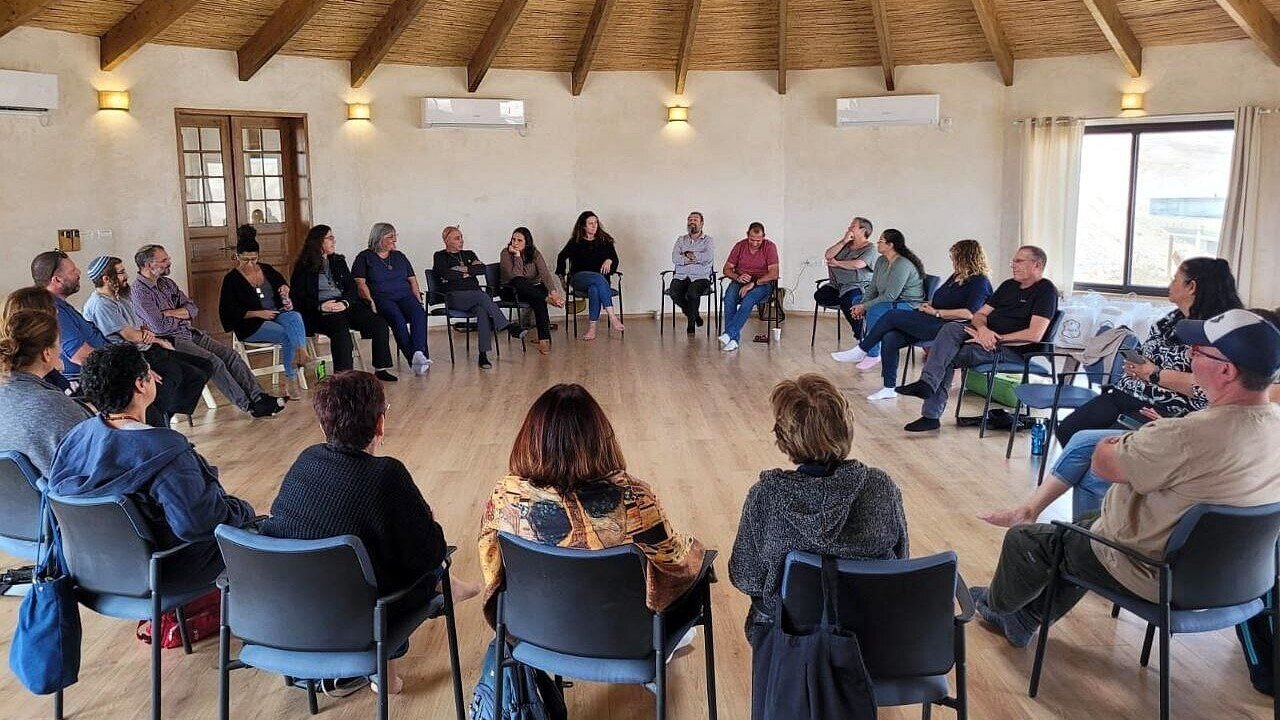Israel is currently facing an unprecedented mental health crisis. Still living with the impacts of the Oct. 7 massacre compounded with displacement, hostages in captivity and the ever-present threat of rocket attacks – Israelis of all ages are struggling to cope.
Mental health clinics in Israel have been inundated with appointment and treatment requests and cannot address this increase in demand.
“There are many layers of healing that need to be attended to immediately with our brothers and sisters in Israel,” said the Jewish Federation of Greater Philadelphia’s Chief Strategy and Impact Officer Dr. Kelly Romirowsky, who holds a doctorate in clinical psychology with a specialization in organizational and leadership development, school psychology, and health psychology. “This is not just a single traumatic event, but rather an ongoing nightmare for those living there.”
Approximately 100,000 individuals have now been exposed to traumatizing incidents due to the ongoing war, according to Israel’s Health Ministry Director General Moshe Bar Siman-Tov.
The effects of this war have been palpable for Israeli citizens, including the Jewish Federation’s Director of Israel and Global Operations Tali Lidar.
“As an employee of the Jewish Federation of Greater Philadelphia living in Israel, I see firsthand the effects of this crisis on a daily basis,” said Lidar. “Mental health and providing those who have been displaced with a sense of security after the worst attacks we, as a country, have experienced in recent years is a top priority.”
In meeting this critical need, Lidar and her Israeli-based team have been working with organizations and service providers on the ground. They interact with people around the country and specifically in the Jewish Federation’s Partnership2Gether (P2G) regions of Netivot and Sdot Negev, located on the Gaza envelope. Through these interactions, the Jewish Federation can assess the current mental health needs, vet the organizations best positioned to address them and allocate vital dollars to support them in their work.
“For over 25 years, we have built a strong relationship of trust and open dialogue with our partnership region,” said Lidar. “Our partners know that as the Jewish Federation, we are there for them. In pledging to help rebuild the country following the Oct. 7 attacks, the Jewish Federation understands that strengthening the resilience of Israelis as individuals and as a whole is an integral component to this mission.”
In addition to year-round funding from the Jewish Federation’s Annual Campaign, the organization invested over $15.8 million from the Philly Stands With Israel emergency fund for high priority post Oct. 7 needs, including mental health services.
The Israel Trauma Coalition for Response and Preparedness (ITC) in Netivot is just one of the organizations that the Jewish Federation has long supported to provide vital psychosocial services to those in the region. In 2022, ITC had 7,000 clients with 240 therapists employed throughout its network of 12 locations. Today, that number has increased to 21,000, with 1,300 therapists on staff.
“There’s no way we could have met this challenge without the Jewish Federation’s support,” said ITC Founder and CEO Taly Levanon. “What they provided us was not only financial but more: we felt seen, acknowledged and cared for.”
The Jewish Federation has allocated $100,000 to ITC over the past three years through its Jewish Community Fund – the organization’s main source of unrestricted dollars that are allocated to the greatest need. Following Oct. 7, the Jewish Federation provided ITC with an additional $60,800 in emergency funding.
“We must invest in a multi-pronged approach that includes both treatment and prevention work in every environment in which people live, work and study,” said Romirowsky. “We cannot rely on having a therapist for every member of Israeli society – we must engage the adults in every child’s life to infuse their role with trauma-informed care so that we can stem the tide of the intergenerational transmission of trauma.”
The Jewish Federation’s funding supports direct, holistic and innovative resources for all ages and backgrounds, including soldiers, underrepresented communities and youth growing up in a crisis. According to the Israeli Pediatric Association, 84% of Israeli children are experiencing emotional distress in the aftermath of the attacks. When looking at the children directly impacted by Oct. 7, that statistic increases to 93% with 69% of them suffering from anxiety.
In addressing the mental health needs of Israeli youth, the Jewish Federation allocates funding to a number of organizations that focus on children. One such organization is Dror Israel, which provides therapeutic emotional and educational support by establishing makeshift schools and day care centers for evacuee children and their families.
“We are providing emotional first-aid for children who have been orphaned, displaced or otherwise impacted by the realities of war, such as enduring the constant sounds of rockets and sirens,” said Dror Israel Engagement Director Joanna Zeiger-Guerra. “The work we do now for these children is imperative and time-sensitive. Thanks to the Jewish Federation's support, we are able to meet the increased mental health needs of our youth. The support and tools these children receive today will be a determining factor in how they live the rest of their lives.”
***
To help the Jewish Federation continue to support programs that address mental health, make a gift at jewishphilly.org/donate.



